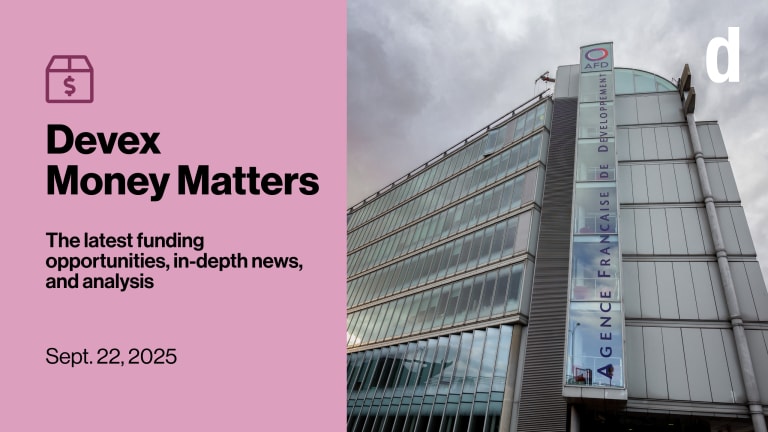Exclusive: Eric and Wendy Schmidt commit $1B to support young talent
SAN FRANCISCO — On Wednesday, Eric and Wendy Schmidt announced a $1 billion philanthropic commitment to identify, develop, and support talented young people from around the world and across disciplines.
“I realized somewhere along the way that my whole career had been driven not by an idea, but rather by a person or a team,” said Eric Schmidt, who served as Google’s CEO from 2001 to 2011 and has an estimated net worth of $15 billion. “I think there are some people who spend their lives thinking, ‘I just have this perfect idea and I want to assemble people to do it,’ whereas it seems to me that for us — we assemble the people, we listen to their ideas, and then we follow the best ideas.”
The anchor for the commitment is a partnership between philanthropic initiative Schmidt Futures and the Rhodes Trust. Rise will find and connect young people ages 15-17 from underrepresented areas who could do more to serve people in their communities if they had more opportunity. Every year, at least 100 young people will be selected to participate in a residential fellowship focused on service and will also have access to opportunities including mentorship and scholarships.
“There are some people who spend their lives thinking, ‘I just have this perfect idea and I want to assemble people to do it,’ whereas it seems to me that for us — we assemble the people, we listen to their ideas, and then we follow the best ideas.”
— Eric Schmidt, philanthropist and former Google CEOThe goal is to encourage a lifetime of service and learning, and to build a global network so the best ideas from the group can scale.
This $1 billion commitment is not the first initiative to come out of Silicon Valley focused on closing the opportunity gap, but the couple sees philanthropy as essential in providing the high-risk capital that young talent needs to test ideas.
“By definition, our systems are not finding this exceptional talent,” Eric said. “And when that talent is found, it’s going to need a boost.”
Investing in people
Eric and Wendy Schmidt have been involved in philanthropy for 13 years, giving more than $1 billion to date through a range of philanthropic organizations and initiatives, including the Schmidt Family Foundation, which is focused on addressing climate change. While he led the Silicon Valley tech giant, she oversaw the couple’s philanthropic efforts, taking a special interest in ocean health.
In December 2017, Eric Schmidt announced that he would step down as executive chairman of Google’s parent company, Alphabet. “I can’t wait to dive into the latest in science, technology, and philanthropy,” he posted on Twitter at the time.
Since then, many observers have wondered how this expanded work in philanthropy might take shape, particularly at a time when billionaire philanthropy has come under scrutiny.
“The success of Google has enabled us to have an outsized impact, and we take that responsibility extremely seriously,” Eric told Devex.
The couple may be known for their investment in science and technology — for example, grabbing headlines with Falkor, a research vessel that conducts year-round open ocean research — but they have always invested in people, Wendy told Devex.
The past few years have offered hints that talent might be a focus of their philanthropy. In 2017, Eric and Wendy Schmidt created Schmidt Futures, which focuses on finding exceptional people and helping them do more for society. Schmidt Futures partnered with the Rhodes Trust, which is behind the prestigious Rhodes Scholarships at Oxford University, on its Schmidt Science Fellows program, a postdoctoral fellowship that promotes interdisciplinary thinking for up-and-coming scientists.
The approach builds on the couple’s belief in the power of networks. The two met at the University of California, Berkeley, when she was starting her master’s in journalism and he was pursuing his doctorate in computer science.
“Eric and I were so largely shaped by the early days of Silicon Valley — that kind of optimism and that kind of impatience to change the world,” Wendy said.
She has long been a proponent of getting people to step outside of their silos and work with others who bring unique skills to the table in order to solve problems, she said.
“That fundamental idea that the network is possible and that you don’t need to invent everything yourself, you need to link yourself to other people — that’s an interesting model for how to do things,” Wendy said. “It means you don’t own everything. You don’t need to do that. You do need to create a system where everyone can participate.”
The couple has amassed a huge amount of wealth through the stock Eric received as Google’s CEO, and they say this $1 billion commitment to talent is just the start of their work in this space.
Other donors in the global development community have also taken on talent as a priority, with the World Bank’s human capital index as one example, and the Schmidts are eager to partner where it makes sense.
“You could imagine that, with a billion-dollar commitment, all of a sudden we now have some skin in the game to begin to drive the various groups that are trying to do this into somewhat more coherent strategies,” Eric said.
The couple told Devex that after working in philanthropy for more than a decade, they finally have an operating model in place that is optimized for impact.
But they acknowledged that challenges lie ahead — for example, when it comes to supporting young talent in places with languages that are not widely spoken.
“Whenever you start something with this kind of ambition, with this kind of scale, it’s going to be a learning curve,” Wendy said.
Search for articles
Most Read
- 1
- 2
- 3
- 4
- 5








